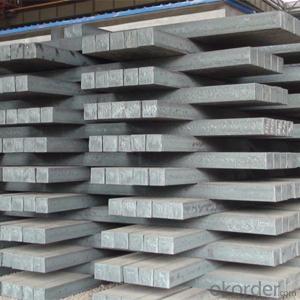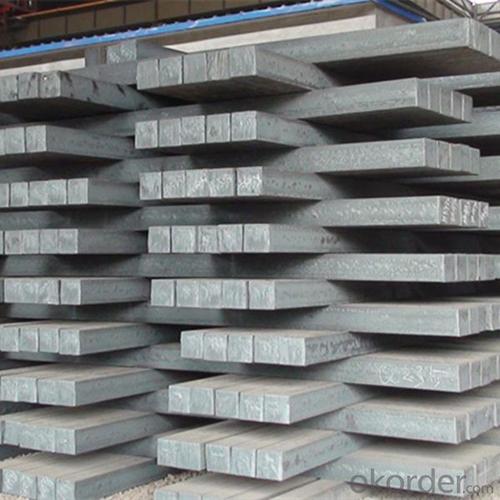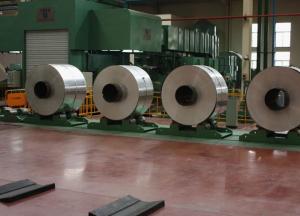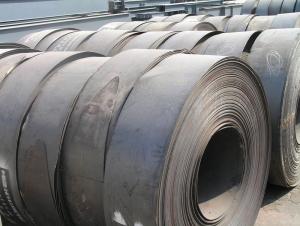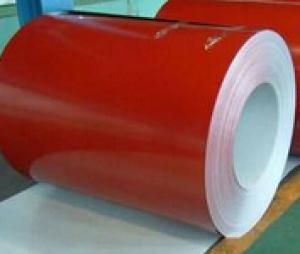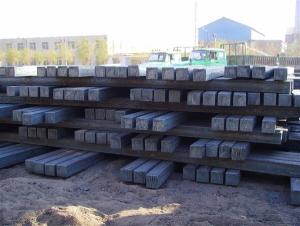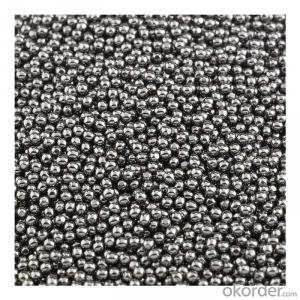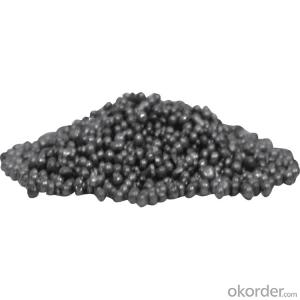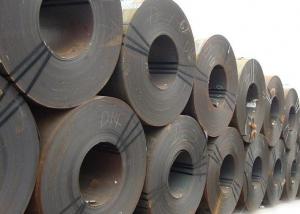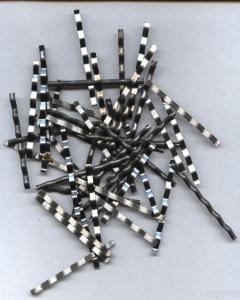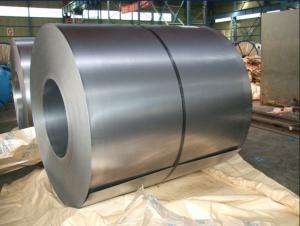Steel Billet Made in China/ China Manufacture
- Loading Port:
- China main port
- Payment Terms:
- TT OR LC
- Min Order Qty:
- 1000 m.t.
- Supply Capability:
- 100000 m.t./month
OKorder Service Pledge
Quality Product, Order Online Tracking, Timely Delivery
OKorder Financial Service
Credit Rating, Credit Services, Credit Purchasing
You Might Also Like
Item specifice
Standard:
ASTM,DIN,JIS
Technique:
Hot Rolled
Shape:
Square
Surface Treatment:
Dry
Steel Grade:
Q195,Q215,Q235
Certification:
ISO,SGS,BV
Thickness:
100mm-150mm
Width:
100mm-150mm
Length:
6-12m
Net Weight:
23mt
Packaging:
Standard Export Packing
Product Description
Prime Steel Billets
| Name: | square bar/steel billet |
| LENGTH: | 6 meter to 12 meter (+ 50mm) |
| Size: | 100*100, 120*120, 150*150, 200*200 |
| Grade: | 3SP,5SP,Q235,20MnSi. |
| Shape: | Square, Round |
| Technique: | Hot-Rolled |
| Standard: | ASTM/GB |
| BENDING | No more than 5mm in 1 meter No more than 30mm in 6 meter No more than 60mm in 12 meter |
| ANGULAR TWIST | No more than 1 degree per meter and not more than 6 degree over 12 meter length. |
| Chemical composition | C, Si, Mn, P, S, N, etc |
Shipping Iterms
| Size | 60*60/90*90/100*100/120*120/150*150 |
| Length | 6000mm-12000mm |
| Standard | GB |
| Applicaton | To produce bars or other applications |
| Grade | Q195/Q235/Q275/3SP/5SP/20MnSi |
| Packing terms | TT/LC |
| Package | Mill's standard packing or as client's requirment |
| Delivery time | Within 10-30 days after receiving the deposit or LC |
Chemical Composition
| Standard | C(%) | Mn(%) | S(%) | P(%) | Si(%) |
| Q195 | ≤0.12 | ≤0.50 | ≤0.040 | ≤0.035 | ≤0.30 |
| Q235 | ≤0.20 | ≤1.40 | ≤0.045 | ≤0.045 | ≤0.35 |
| Q275 | ≤0.22 | ≤1.50 | ≤0.045 | ≤0.045 | ≤0.35 |
| 20MnSi | 0.17-0.25 | 1.2-1.6 | ≤ 0.050 | ≤ 0.050 | 0.40-0.80 |
| 3SP | 0.14-0.22 | 0.40-0.85 | ≤ 0.050 | ≤ 0.040 | 0.05-0.15 |
| 5SP | 0.28-0.37 | 0.50-1.00 | ≤ 0.050 | ≤ 0.040 | 0.15-0.30 |
Product Pictures
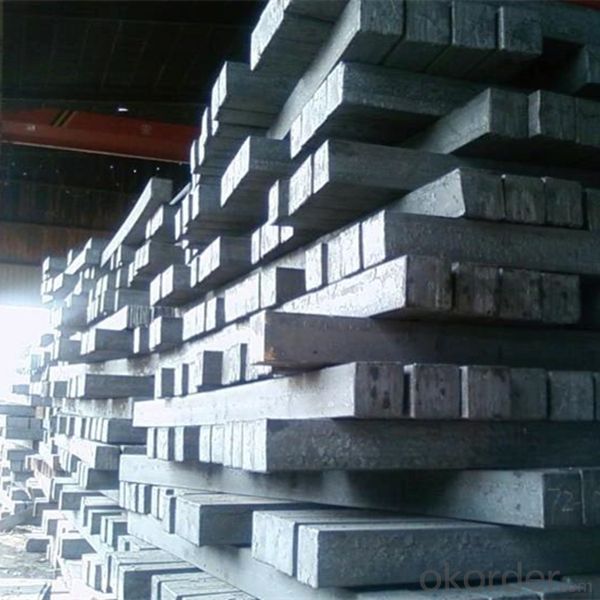
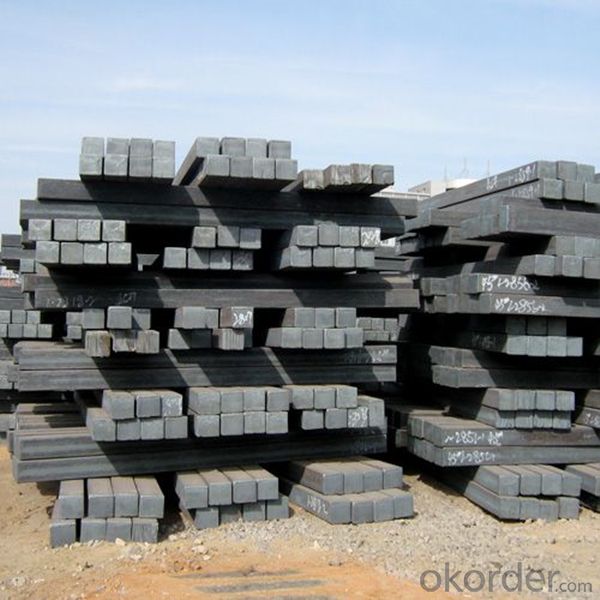
Production Process
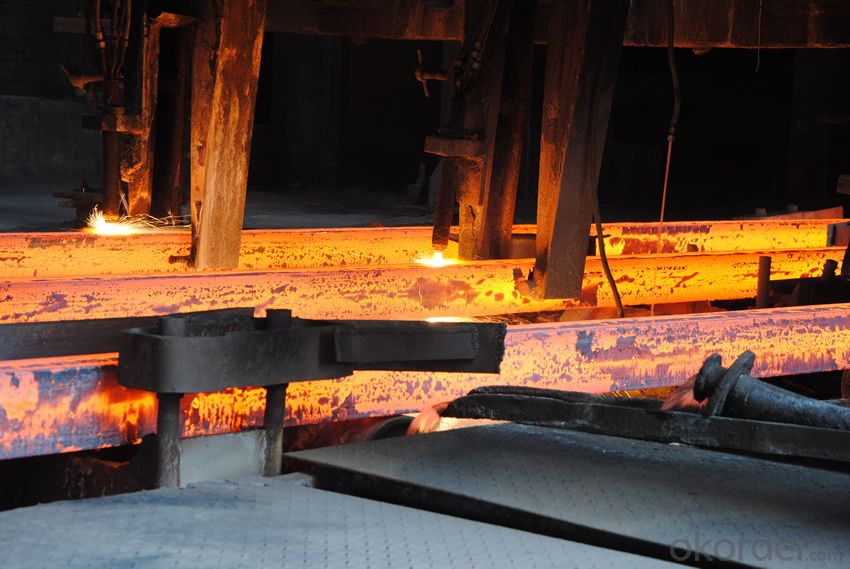
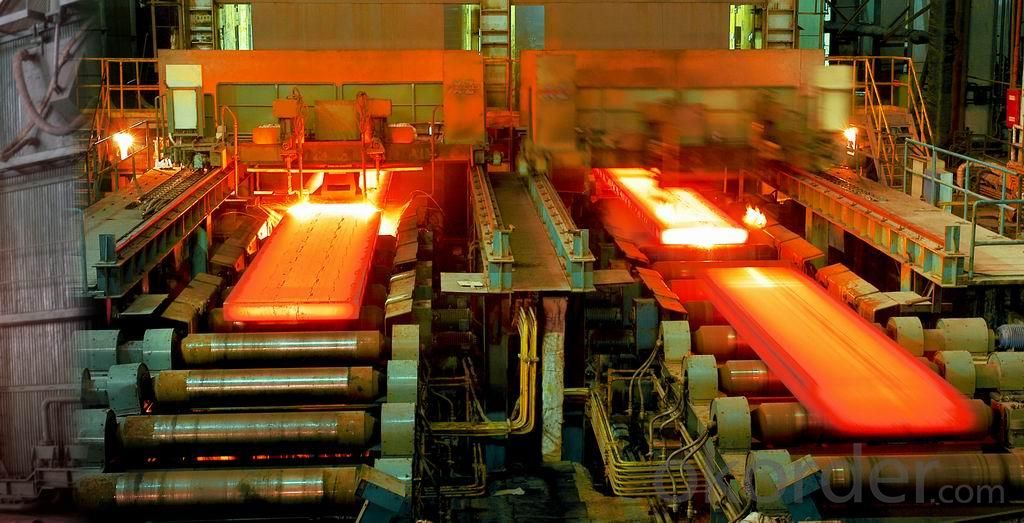
- Q:How are steel products used in the construction of schools and educational institutions?
- Steel products are widely used in the construction of schools and educational institutions for various purposes. They are commonly used in the structural framework, such as columns, beams, and trusses, to provide support and stability to the buildings. Additionally, steel is used in the construction of roofs, walls, and floors due to its durability and ability to withstand heavy loads. Steel products also play a crucial role in the construction of doors, windows, and other architectural features, ensuring safety and security. Overall, steel products are essential in creating sturdy and long-lasting educational facilities.
- Q:What are the common uses of stainless steel cookware?
- The common uses of stainless steel cookware include cooking various types of food, boiling water, sautéing, frying, baking, roasting, and simmering. Stainless steel cookware is versatile, durable, and non-reactive, making it suitable for everyday cooking as well as more specialized techniques like searing and deglazing.
- Q:How can steel products be protected from corrosion?
- Steel products can be protected from corrosion through various methods such as applying protective coatings like paint or galvanizing, using corrosion-resistant alloys, implementing cathodic protection systems, maintaining proper drainage and ventilation, and regular cleaning and maintenance to remove any corrosive substances.
- Q:What are the different types of steel fittings and their uses?
- There are several types of steel fittings commonly used in various industries. Some of the most common types include steel elbows, steel tees, steel reducers, steel couplings, and steel flanges. Steel elbows are used to change the direction of a pipeline, allowing for smooth flow in the desired direction. Steel tees are used to branch off a pipeline into two or more directions. Steel reducers are used to connect pipes of different sizes, allowing for a smooth transition. Steel couplings are used to connect two pipes together, providing a secure and leak-proof joint. Steel flanges are used to connect pipes or valves to other equipment, such as pumps or tanks, and provide an easy access point for maintenance or repair. Overall, steel fittings are essential components in piping systems, ensuring proper flow, connection, and functionality in various applications across industries like oil and gas, construction, and manufacturing.
- Q:How is steel used in the manufacturing of appliances?
- Steel is commonly used in the manufacturing of appliances due to its high strength, durability, and heat resistance. It is used to construct the outer shells and frames of appliances such as refrigerators, ovens, and washing machines, providing a sturdy and long-lasting structure. Steel is also used in the internal components of appliances, including motors, heating elements, and various mechanical parts, ensuring their efficient and reliable operation.
- Q:What are the different types of steel angles and their applications in construction?
- There are several different types of steel angles used in construction, including equal angles, unequal angles, and L-shaped angles. Equal angles have equal sides and are commonly used as structural components to provide support and stability. Unequal angles have different length sides and are often used to create transitions or to accommodate specific design requirements. L-shaped angles, also known as corner or bracket angles, are used to reinforce corners and joints in construction projects. Overall, steel angles are versatile and essential components in construction, providing strength and stability to various structures and applications.
- Q:How is steel used in the construction of sports facilities?
- Steel is commonly used in the construction of sports facilities due to its strength and durability. It is used to create the framework of the structures, such as the supports for roofs and walls. Steel is also used in the construction of bleachers, seating areas, and staircases. Its versatility allows for the creation of large, open spaces, ensuring the safety and comfort of spectators. Additionally, steel's resistance to corrosion makes it suitable for outdoor sports facilities, as it can withstand harsh weather conditions.
- Q:How is steel wire rope manufactured?
- Steel wire rope is manufactured through a process called wire drawing. It starts with raw steel wire being drawn through a series of dies to reduce its diameter and increase its strength. This wire is then twisted together to form strands, which are further twisted around a core to create the final rope. These ropes undergo heat treatment and various tests to ensure their quality and durability.
- Q:What are the different types of steel chains and their uses in lifting equipment?
- There are several types of steel chains used in lifting equipment, each with its own specific uses. Some common types include: 1. Grade 80 Chains: These chains are made from alloy steel and are known for their high strength and durability. They are commonly used in heavy-duty lifting applications such as construction and mining. 2. Grade 100 Chains: Similar to Grade 80 chains, Grade 100 chains offer even higher strength and are suitable for more demanding lifting tasks. They are often used in applications that require extra safety measures, such as overhead lifting. 3. Stainless Steel Chains: These chains are made from corrosion-resistant stainless steel, making them ideal for lifting equipment used in environments with high humidity or exposure to chemicals. They are commonly used in marine, food processing, and pharmaceutical industries. 4. Proof Coil Chains: These chains are made from low-carbon steel and are designed for general-purpose lifting applications. They are widely used in industries such as agriculture, warehousing, and manufacturing. 5. Transport Chains: Also made from low-carbon steel, transport chains are specifically designed for securing and transporting heavy loads. They are commonly used in the transportation industry for securing cargo on trucks, trailers, and flatbeds. Overall, the choice of steel chain depends on the specific lifting application, load capacity requirements, and environmental conditions, ensuring the safety and efficiency of the lifting equipment.
- Q:What are the uses of steel wire mesh in geotechnical engineering?
- Steel wire mesh is commonly used in geotechnical engineering for various applications. It is primarily used for reinforcing soil and providing stability to slopes, embankments, and retaining walls. The mesh helps in preventing erosion and soil movement by reinforcing the earth structure. Additionally, steel wire mesh is used for soil stabilization during excavation and construction activities, as well as for reinforcing concrete structures like road pavements and foundations. Overall, steel wire mesh plays a crucial role in enhancing the strength and durability of geotechnical projects.
1. Manufacturer Overview |
|
|---|---|
| Location | |
| Year Established | |
| Annual Output Value | |
| Main Markets | |
| Company Certifications | |
2. Manufacturer Certificates |
|
|---|---|
| a) Certification Name | |
| Range | |
| Reference | |
| Validity Period | |
3. Manufacturer Capability |
|
|---|---|
| a)Trade Capacity | |
| Nearest Port | |
| Export Percentage | |
| No.of Employees in Trade Department | |
| Language Spoken: | |
| b)Factory Information | |
| Factory Size: | |
| No. of Production Lines | |
| Contract Manufacturing | |
| Product Price Range | |
Send your message to us
Steel Billet Made in China/ China Manufacture
- Loading Port:
- China main port
- Payment Terms:
- TT OR LC
- Min Order Qty:
- 1000 m.t.
- Supply Capability:
- 100000 m.t./month
OKorder Service Pledge
Quality Product, Order Online Tracking, Timely Delivery
OKorder Financial Service
Credit Rating, Credit Services, Credit Purchasing
Similar products
New products
Hot products
Hot Searches
Related keywords
